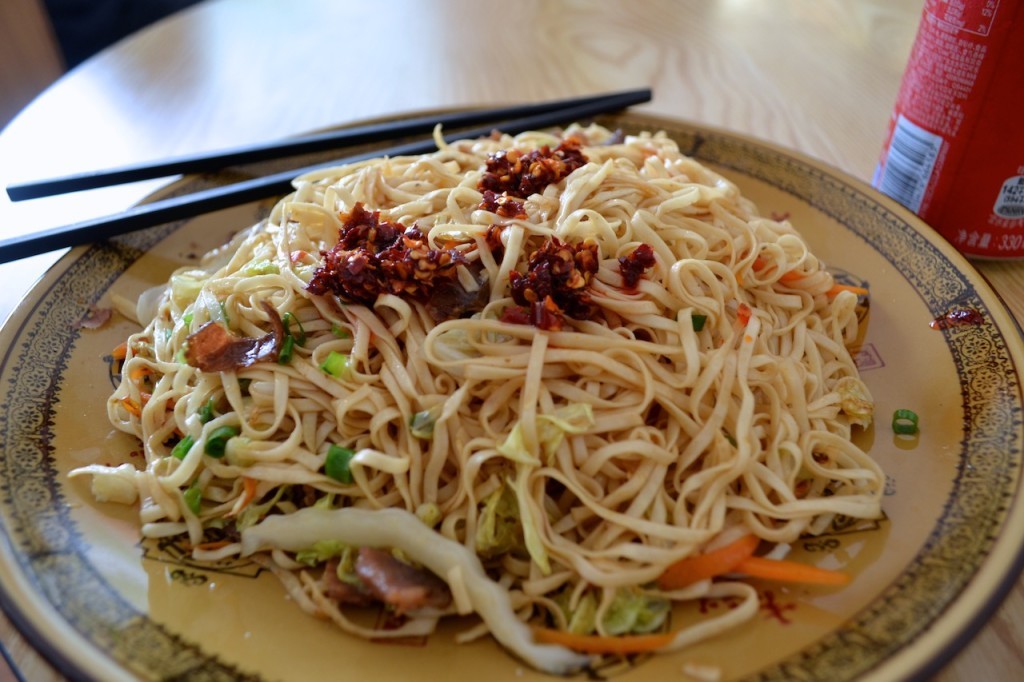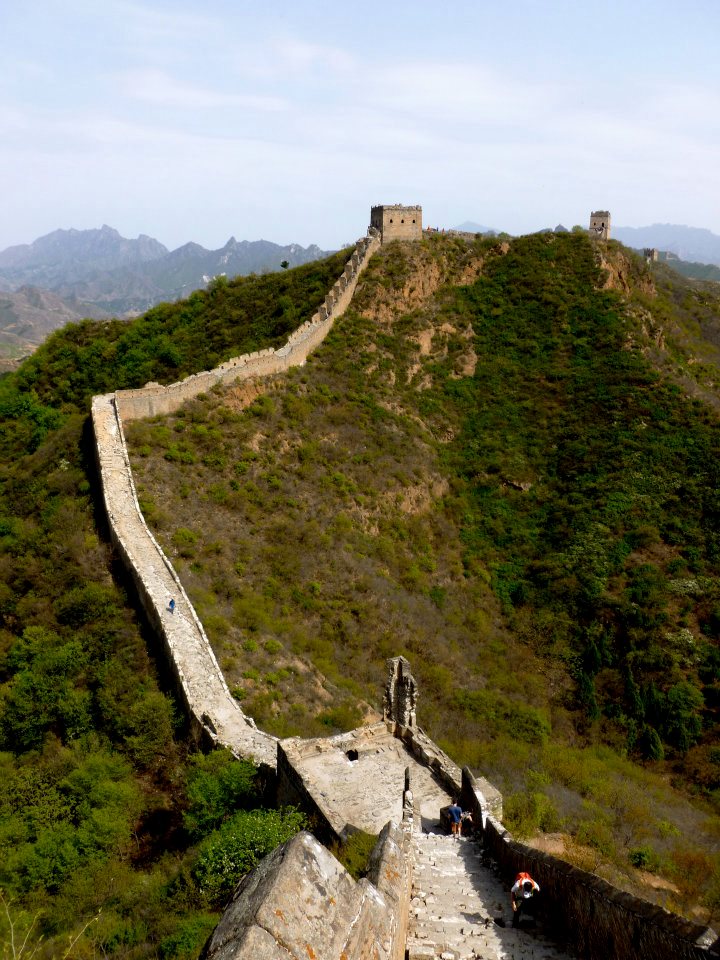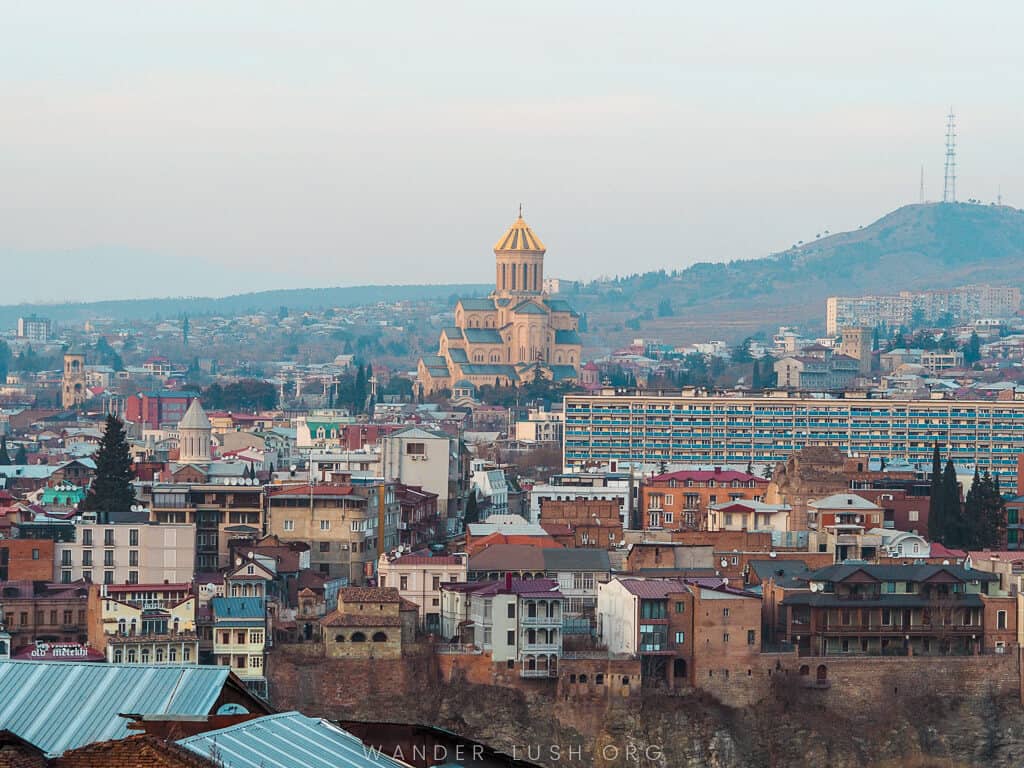Last Updated on June 19, 2018 by Jonathan Look
Overall, living in China is a great way to save money.
China is definitely significantly cheaper than a lot of western countries. But how cheap is cheap? Beijing is one of my favorite cities in China, but is also one of the most expensive places to live in this vast country. Whether you’re about to move to China, or are curious about the possibility, here is a step-by-step breakdown of what it costs to live in Beijing for one month.
The first and most obvious cost is housing. While this can vary greatly depending on the location and type of accommodation, you should expect to pay between $1,500 USD and $1,800 USD for a nice one-bedroom apartment or hutong house in a good area. If this seems expensive, there are definitely much cheaper options. I paid about $370 USD per month for a bedroom in an apartment with no living room and three random roommates.
While the housing in Beijing is expensive compared to other cities in China, public transportation is extremely cheap. The subway is $.50 USD anywhere you want to go in the city. The bus is even cheaper, at about $.05 with a bus card ($.15 without).
See also:
- What Does it Cost to Live for a Month in Madrid
- What Does Does It Cost to Live for a Month in Copenhagen, Denmark?
- What Does it Cost to Live for a Month in Costa Rica?
Taxis are also extremely inexpensive by American standards. The starting price is about $2 USD, and will go up by distance. The most I’ve ever spent on a taxi in Beijing was $20 USD, for almost an hour taxi ride from the airport far outside the city, to my apartment in central Beijing. It was also midnight, so the cab fares are more expensive. Expect to pay $5 USD for a reasonably short cab ride, $10 if you want to go somewhere further away.
One of the best things about China is the plethora of tasty, cheap food. You can easily get lunch at a small hole-in-the-wall restaurant for $1 USD. These places usually serve dumplings, fried rice, noodles and soups. If you would like to eat at a restaurant, expect to pay $2-4 USD per dish, sometimes much more for expensive seafood dishes. Eating non-Chinese food, however, can be a bit more expensive. Expect to spend at least $10 USD on a “Western” meal.
If you prefer to cook, most apartments come with a rice cooker, hot plate and wok. Cooking in China can be very cheap if you cook Chinese food. I normally buy a huge cart-full of vegetables, and stirfry them in my wok, eating them with rice. Vegetables are very cheap in China. You can get a large bag of bok choi for about $.50 USD! Meat is a little more expensive. Pork is the cheapest, and can be bought for about $3 USD.
Keep in mind, any imported produce (pasta, cereal, cheese, coffee) will be more expensive than it is in the USA. I bought a large tub of coffee at Walmart in Seattle for $8 USD. In China, the same tub would cost about $20 USD! I would suggest bringing coffee with you, picking some up in Vietnam or Taiwan during your travels, or sticking to instant coffee.
Living in China you will have to purchase drinking water since tap water is undrinkable. You can boil and refrigerate water, but most people choose to buy water coolers. These are extremely cheap, at around $2 per large jug. When you want more water you can call a company to deliver it to you, and pick up your used jugs.
Many basic household items are slightly cheaper than they are in the USA. Soap, detergent, toothpaste and cleaning products are all affordable. However, many beauty and hygiene products are more expensive than they are at home. It’s also very hard to find antiperspirant deodorant, non-skin whitening moisturizer and tampons. I would also suggest bringing makeup from your home country, because it is much more expensive. I usually spend about $3 USD on mascara, but in China I pay $10 USD for a Korean equivalent of lower quality.
There are two kinds of shopping in China: real stores and bargaining markets. Clothing and shoes at real stores in China can be more expensive than America. For example, I wanted to buy a pair of nice, flat, lace-up boots, but I couldn’t find anything for less than $100 USD! In America I found a great pair for $60 USD. Brands like H&M, Forever 21 and Zara are the same price as they are back home, and tend to carry larger sizes as well.
If you’re looking for cheap goods, bargaining markets are shopping heaven! You can buy anything from designer bags to shoes, luggage, sunglasses, clothing and much more. Some of the items are fake knockoffs of designer goods (think designer bags, Nike shoes), while others are just affordable non-brand name items. Be sure to bargain hard, and be prepared for these goods to be lower quality. In my last shopping trip, I spent $20 USD on a fake designer bag, $30 on fake Chloe sunglasses, and another $30 on fake hot-pink Nike tennis shoes.
Seeing a movie in China will cost the same as back home (about $10 USD). The locals love KTV, and you can rent a room for about $20 USD an hour during peak hours, with cheaper specials late at night. If you’re living in Beijing, you’ll also want to check out some of the famous attractions like the Temple of Heaven, Forbidden City and Summer Palace. Expect to pay between $5-$10 USD for these places.
Beijing has many bars catering to poor study abroad students and English teachers, which serve draft beer for $1USD and rail drinks for $2 USD. At a normal bar, you can expect to pay about $4 USD for a small bottle of Chinese beer. If you go to the grocery store, a large bottle of the same beer will cost about $1 USD.
Most clubs in China are free to enter, but have extremely expensive drinks. Quality wine is a bit harder to find in China, but stores like Walmart often sell $3 USD bottles of cheap Spanish wine. If you want decent wine, expect to pay at least $10 USD. White wine is much harder to find and tends to be more expensive than red wine.
Overall, living in China is a great way to save money. Most things are significantly cheaper than they are at home. Taking a taxi, eating out and drinking in bars are all extremely affordable. Unfortunately, the taxes on imported goods make buying food from home prohibitively expensive.
This post is by Richelle, a 23 year old Seattle native that lives in Beijing, China. When she is not not teaching English, Richelle travels around Asia and writes about it and living in China on her blog, Adventures around Asia. You can follow her on Facebook, Twitter or Instagram.














If you are an American returning back to Belgium China to get your retirement pension can you have the government taxes taken from your pension or must you have the cash to pay the taxes before you can receive your pension American doctor